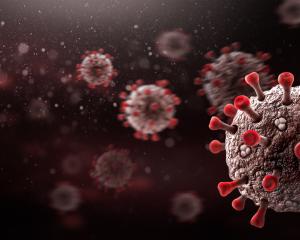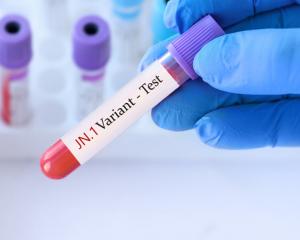There has been much which has been commendable about the Government’s response to the Covid-19 pandemic but its performance over rapid antigen tests (Rats) is not on the list.
The Government has been keen to portray itself as diligently listening to experts and taking their advice, but the Rats kerfuffle illustrates how hit-and-miss that attention can be.
In the first year of the pandemic it made the sensible move of setting up a committee to oversee the implementation of the surveillance plan and testing strategy. In September 2020, that committee called for priority to be given to broadening the range of testing methods beyond the PCR test carried out by a nasopharyngeal swab.
The progress on this was woeful.
Then, a year later, a letter from the Covid-19 Continuous Review, Improvement and Advice Group chaired by Sir Brian Roche, to the Covid response minister Chris Hipkins suggested nothing much had changed. The letter said ongoing issues with innovation around testing and electronic tracing enhancement needed to be resolved. The country could not afford the delays in the introduction of Rats experienced with saliva testing.
However, the issue continues to be dogged with controversy and confusion. Rats are designed to complement PCR testing and are already being used in some workplaces as a screening tool. Unvaccinated or partially vaccinated domestic travellers on airlines or other transport companies requiring testing have also had access to tests.
As a public health measure, they come into their own in a major outbreak if the number of cases rise so fast access to PCR tests and contact tracing get overwhelmed. They can be completed in the home and, similar to a pregnancy test, can give a result quickly, often in less than 15 minutes. However, because of the likelihood of the tests turning up false positives, they have been described by some scientists as almost useless when case numbers are low.
But, in the midst of fierce international demand for the tests, the Government has been too slow in ordering supplies and is now accused of commandeering the tests which were ordered by businesses to shore up its inadequate stock. It is understandable the Government might want to ensure there are enough tests for asymptomatic close contacts decreed as critical workers to allow them to return to work quickly in a major outbreak, but there still seems to be confusion about who this will involve.
Arguments that it could have stock-piled tests months ago are academic now, but the situation will remind many of the fiasco around supplies of personal protective equipment (PPE) earlier in the pandemic. Again, the Government, which has worn out the expression ‘‘team of 5 million’’, is not giving business the opportunity to play a full game.
Frequent critic of the Government’s response shortcomings, but with an eye to solutions rather than just complaining, Sir Ian Taylor, outlining the moves businesses have made to secure Rats in recent days, has once again drawn attention to the way businesses can work together to get things done, if only given the opportunity.
The Government needs to be much more responsive to such initiatives. The idea that the Ministry of Health, which was struggling with a lack of talent and bedevilled with bureaucracy before the pandemic, would suddenly become efficient and able to do everything asked of it seamlessly was magical thinking. The Rats saga shows it is time for the Government to heed the consistent advice of Sir Brian’s group, that a fit-for-purpose Covid-19 agency/response unit is needed which is better able to anticipate rather than be in a state of reactivity.
Such a unit, which would have both government and private sector input, would allow existing government department chief executives to go back to their usual roles. As Sir Brian’s letter said, the current operating model is failing and will fail in the even more complex operating environment after New Zealand reopens.










